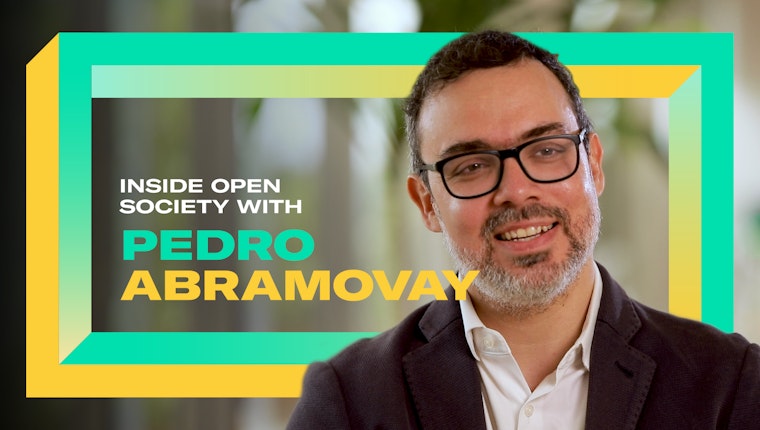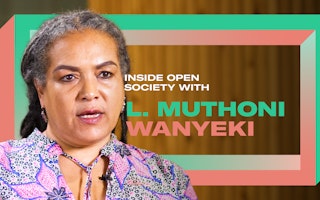Striving to Safeguard Democracy in Latin America and the Caribbean
By Pedro Abramovay

Inside Open Society is a look at the leaders at the Open Society Foundations who are advancing our vision to address the world’s most urgent threats to democracy and human rights at a transformative scale.
Brazil was ruled by a dictator from 1961 to 1985. Growing up during that time, I learned that democracy is something you need to fight for—and that the struggle to defend it can come at a steep cost. Members of my family were arrested, and we were ultimately sent into exile. The authoritarian narrative that marked my childhood was nothing new to Latin America. And while in recent decades, we’ve seen democracy flourish across the continent, many of the inequalities produced by far less tolerant and inclusive societies persist.
Today Latin America accounts for 11 percent of the global population—and more than one-third of the homicides in the world. Those most affected are the poor and ethnic minorities. These communities are also hardest hit by extreme climate events—in Latin America and the Caribbean as well. It’s clear that our region needs a complete economic overhaul to help them prevail.
Because I grew up witnessing these risks, I always thought I had no option but to dedicate my life to fighting for democracy. In our region, democracy survives and thrives through a vibrant civil society, and that’s what I fight for every day as a leader of Open Society Foundations in the region. Open societies allow people to develop the best of themselves, and this requires freedom—space for people to fight, to transform their communities by allowing different voices, including those of the most vulnerable, to be part of the collective project of each country.
Guided by the belief in open societies and understanding the region’s complexity, we continue to prioritize democratic reforms, peace, racial and gender justice, violence reduction, climate justice, and reduction of economic inequality in Latin America and the Caribbean.
There are many challenges on the road to reform. Yet we see hopeful signs, in the democratic renewal in the region and the significant gains against authoritarianism. Indeed, we are seeing a much more robust women’s rights movement in places like Chile, Mexico, and Argentina. Meanwhile, the racial justice movement is gaining access to power in Brazil and Colombia. And Caribbean communities suffering the effects of the climate crisis are mobilizing for environmental justice in the Bahamas, Trinidad and Tobago, and the San Andres and Providencia archipelago.
We champion the achievements of the grantees we support. But we also work directly with governments. For example, we supported the city of Bogota in establishing a care economy system that could help women’s economic development in Colombia. We also supported efforts to reduce homicides in many towns and local governments in Mexico, Colombia, and Brazil. When the pandemic hit, we went to two Amazonian governments in Brazil to help them fight its devastating impact on the region.
In all these scenarios, there is a struggle. But more importantly, there is inspiration, especially when you see people who never imagined they could have power coming together in the belief that they can change the world.

Pedro Abramovay is vice president of Programs at the Open Society Foundations.


